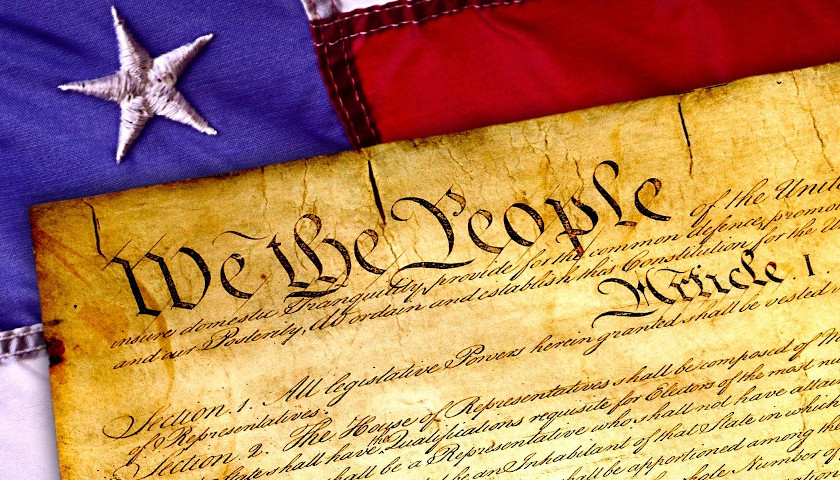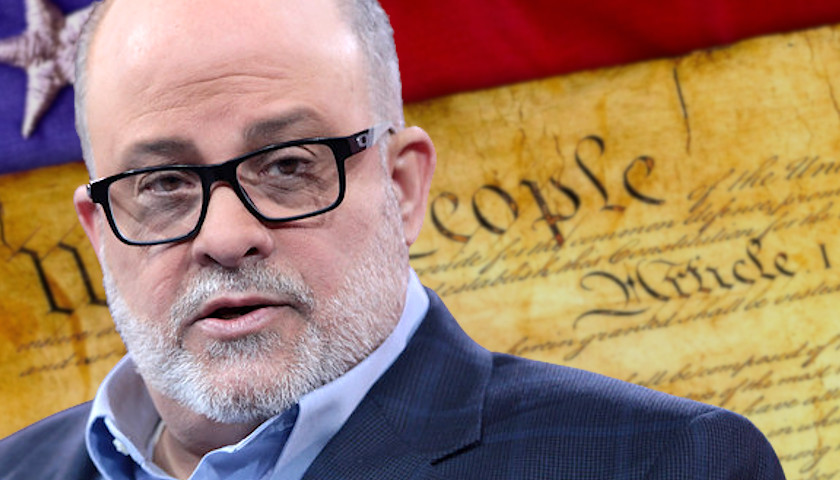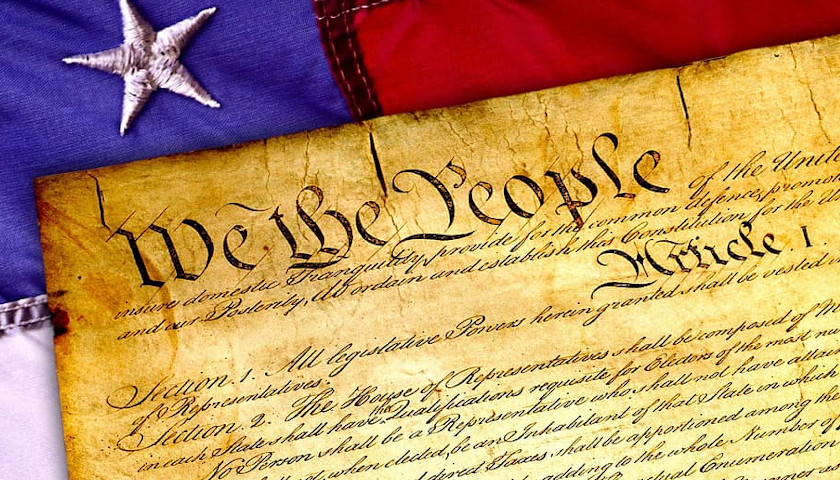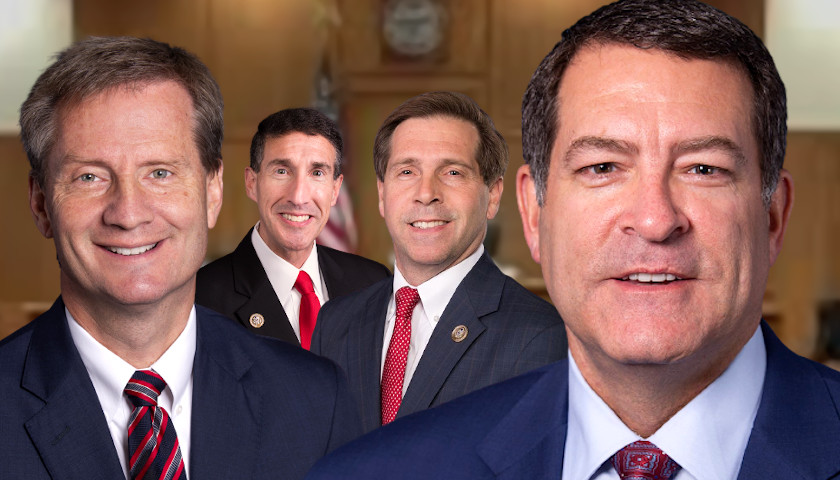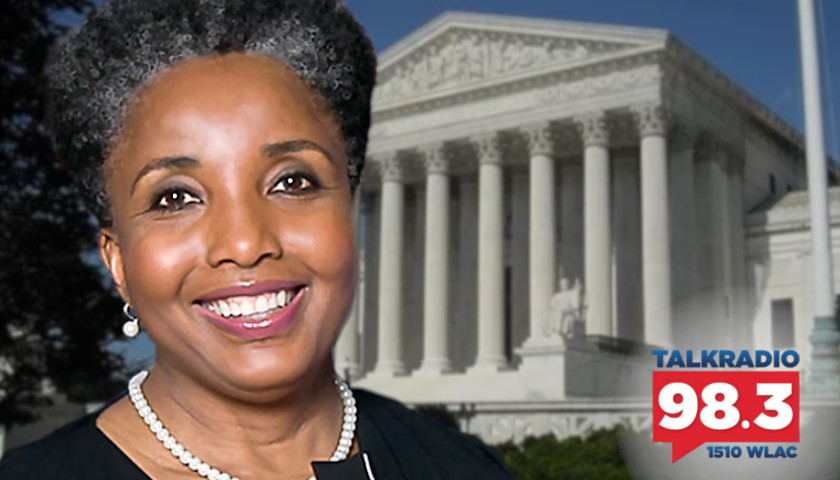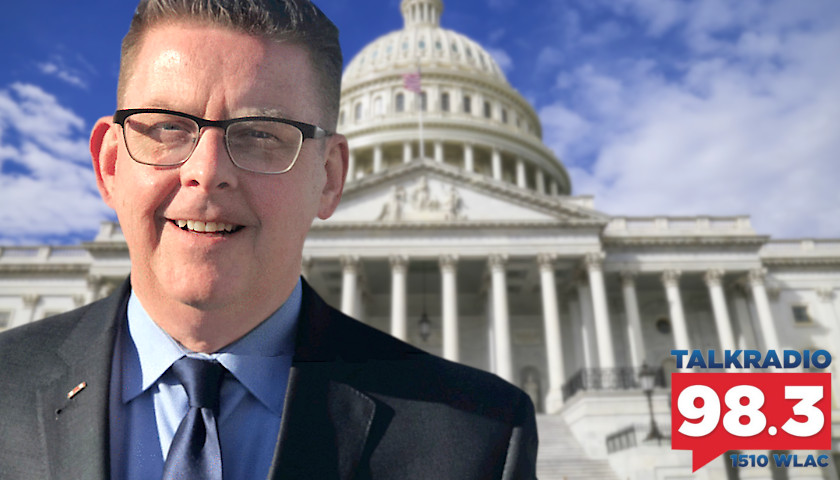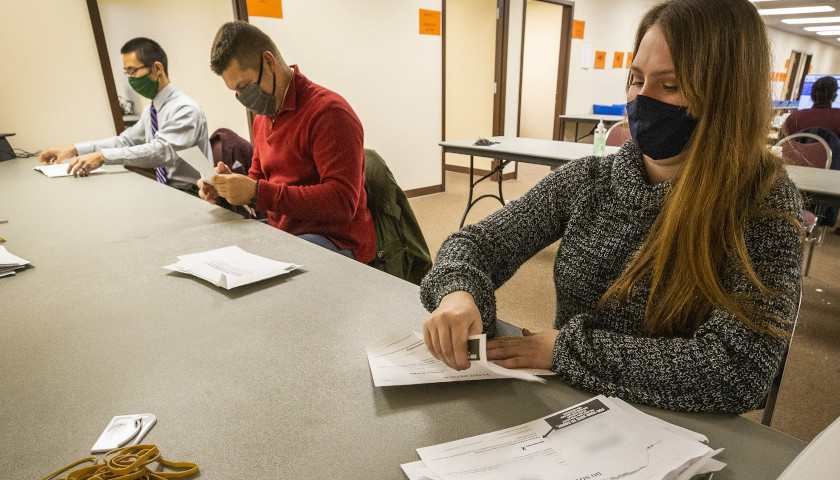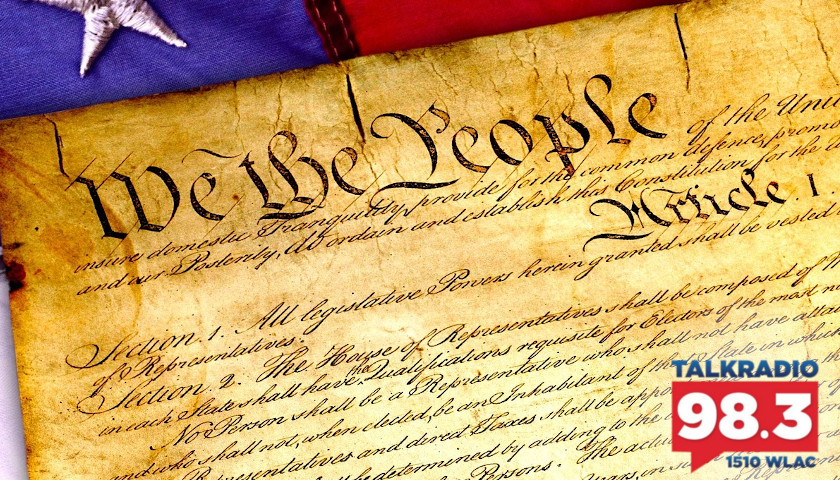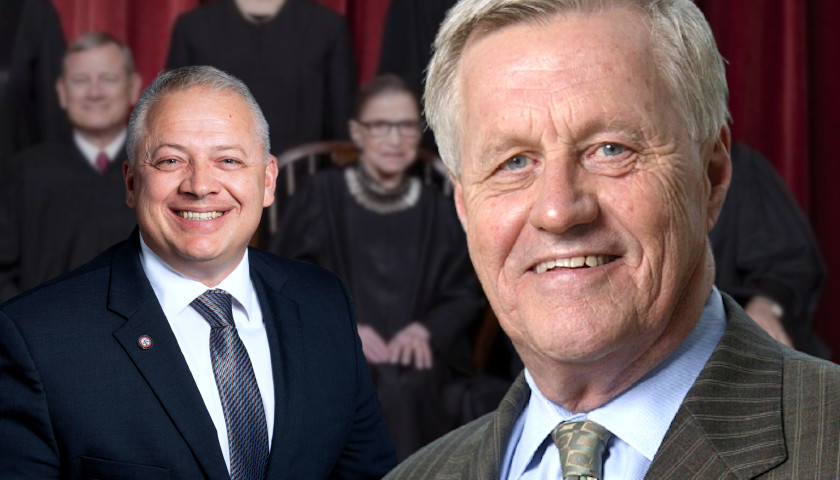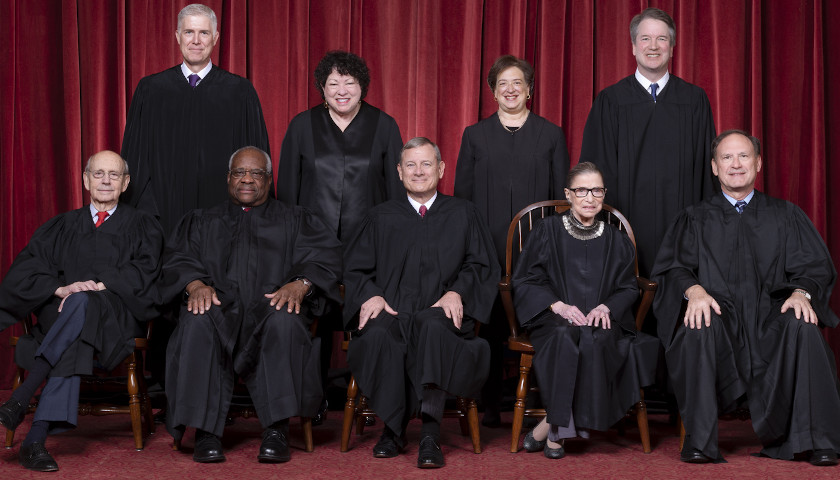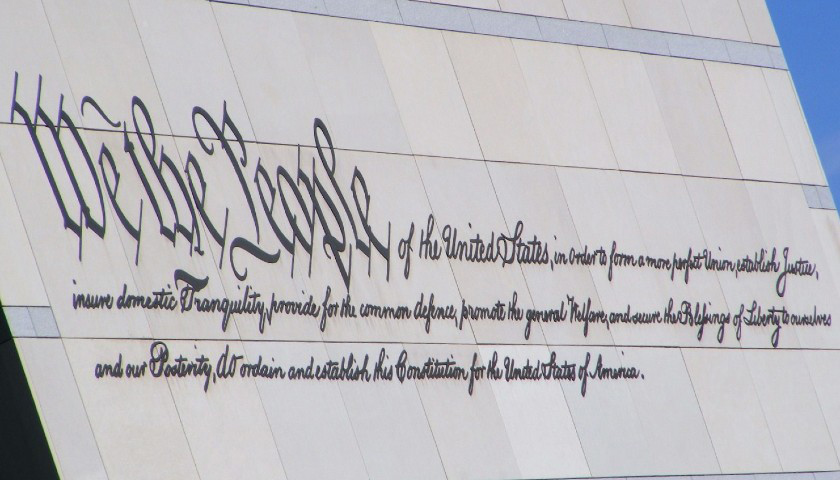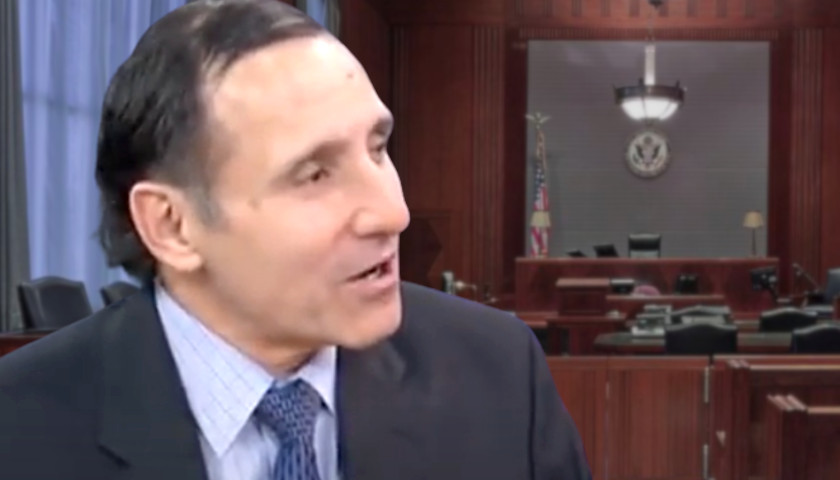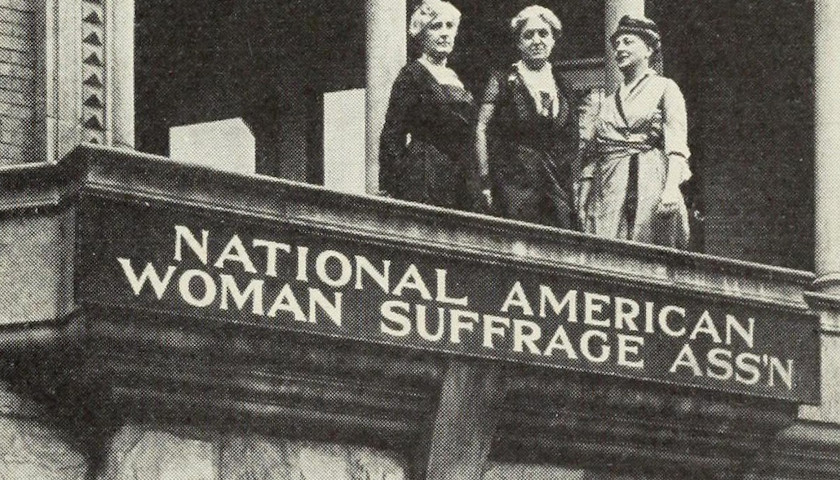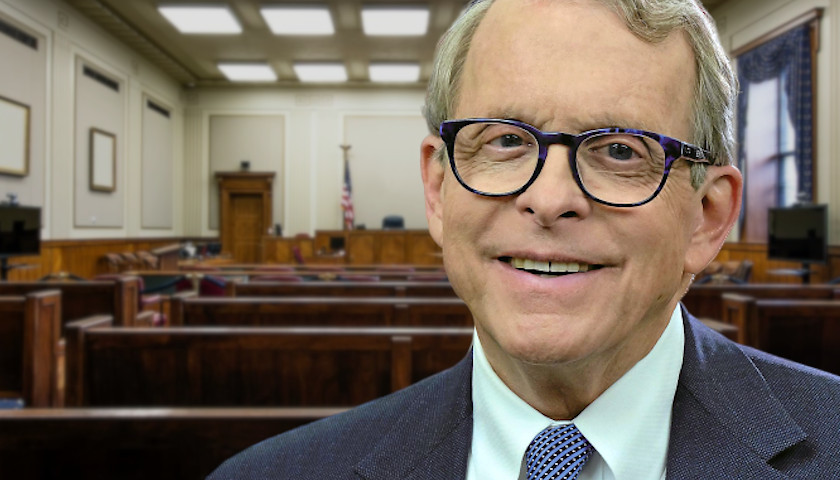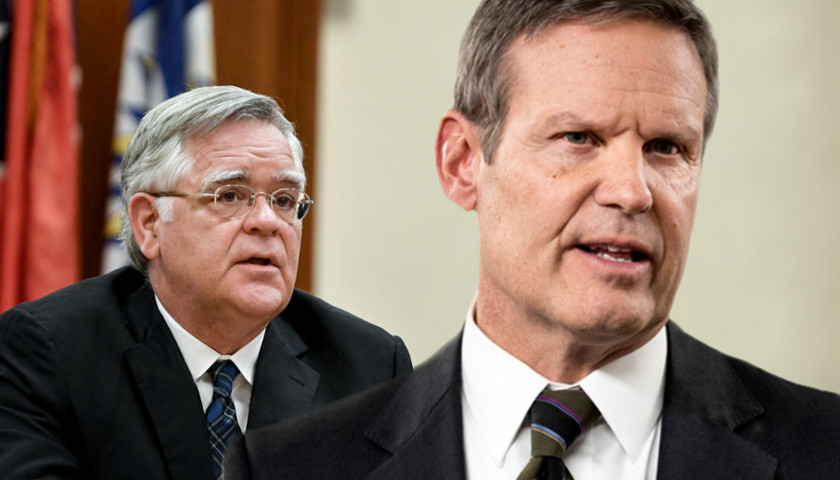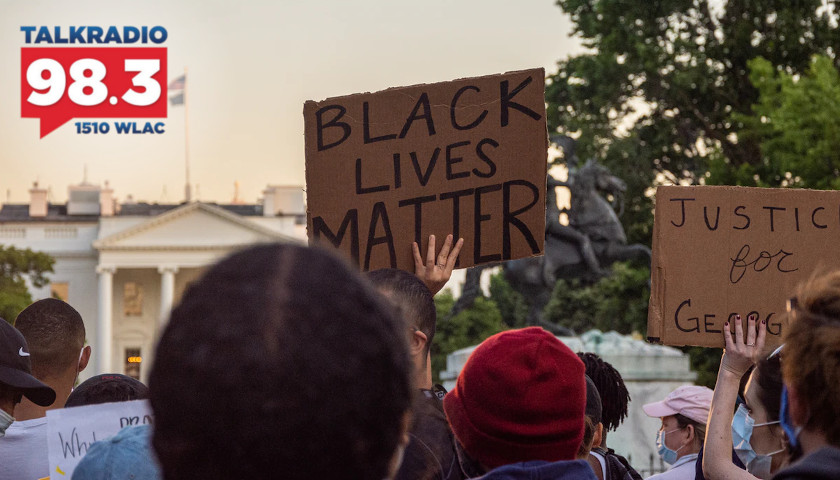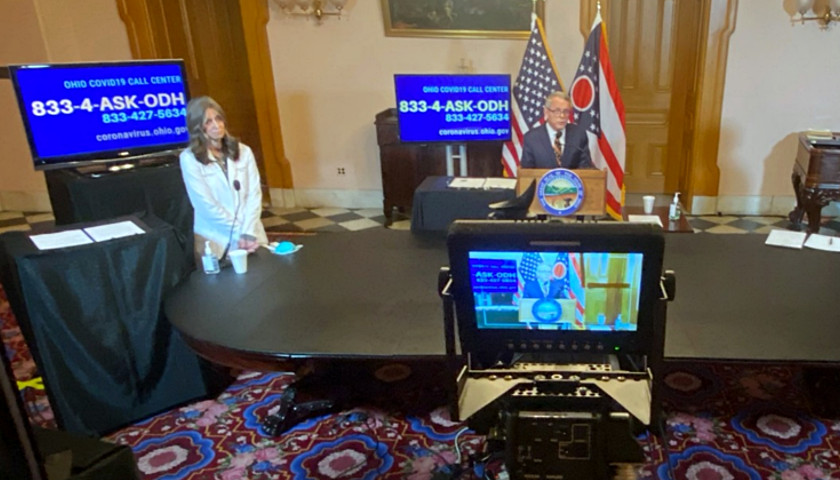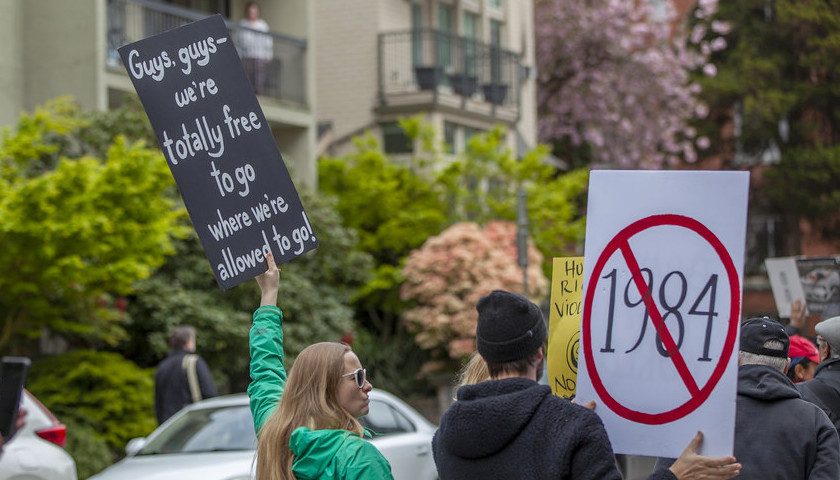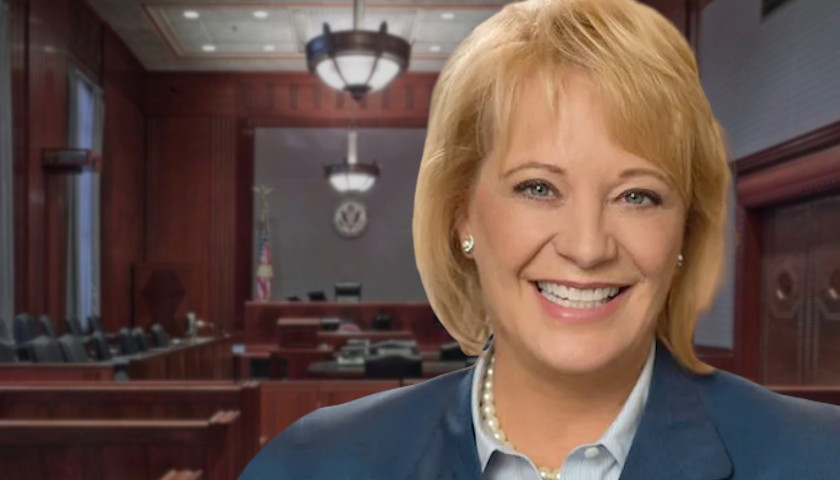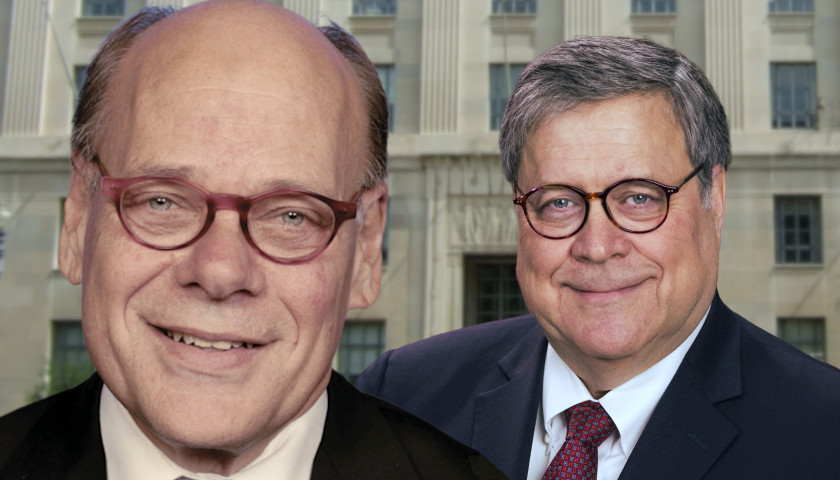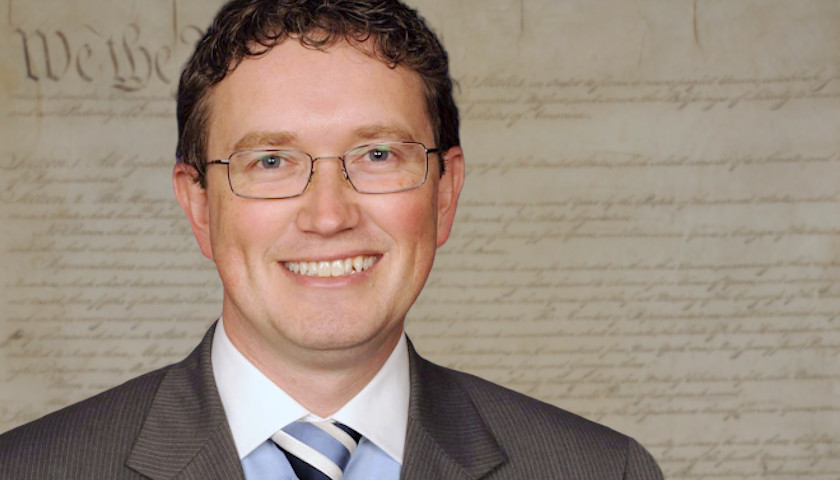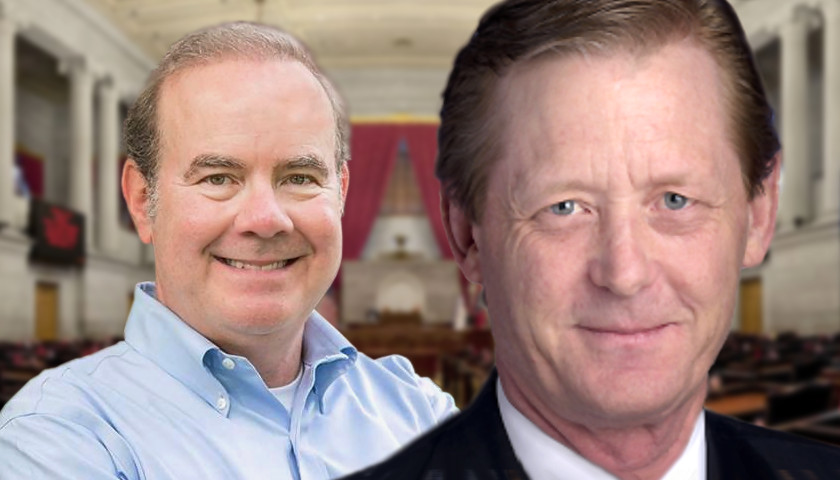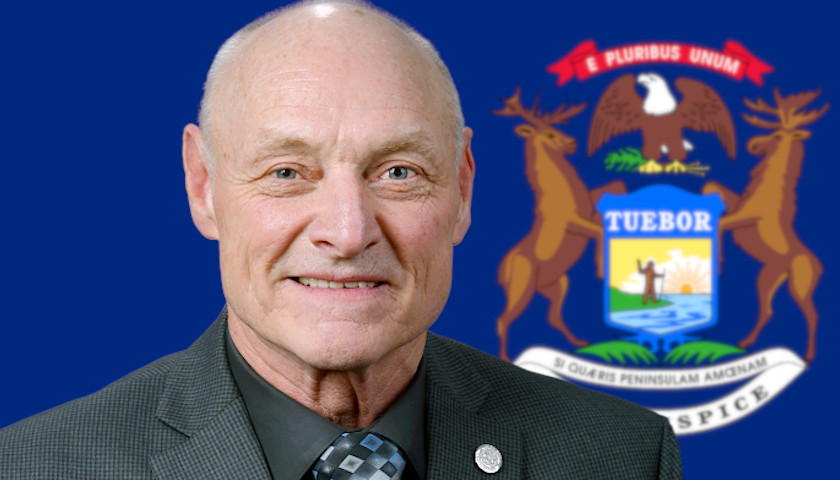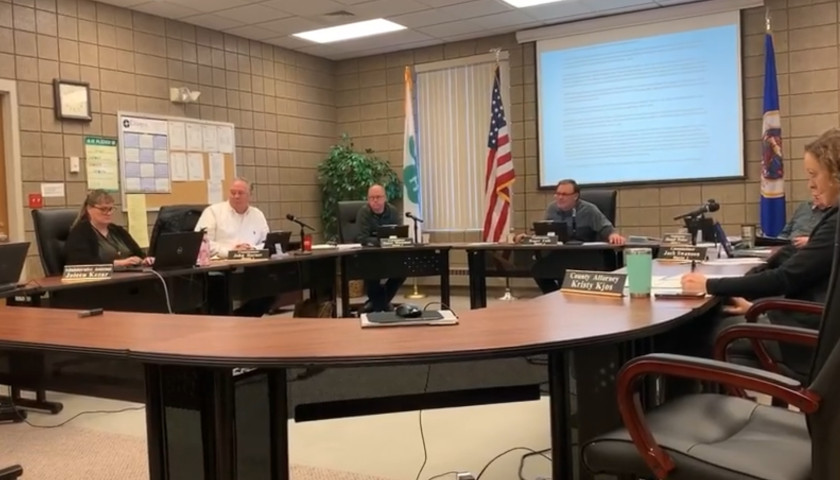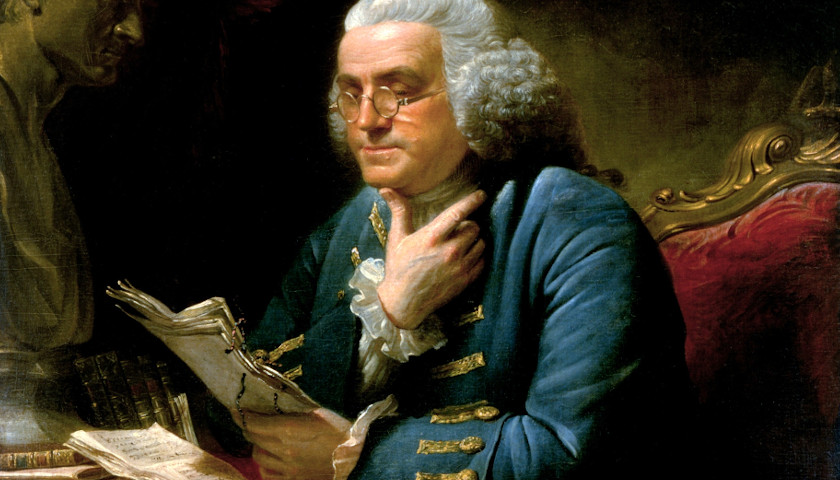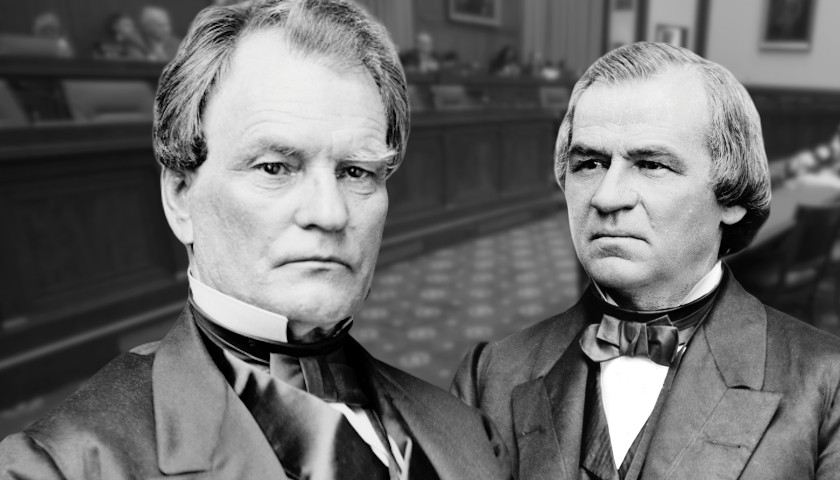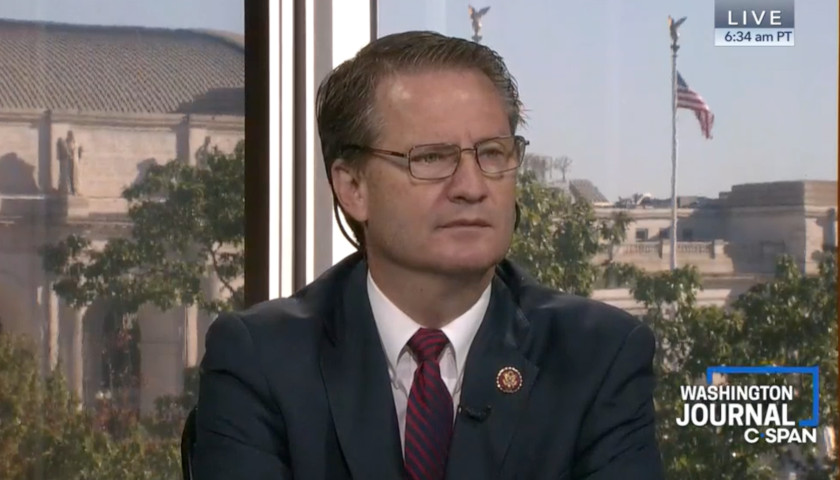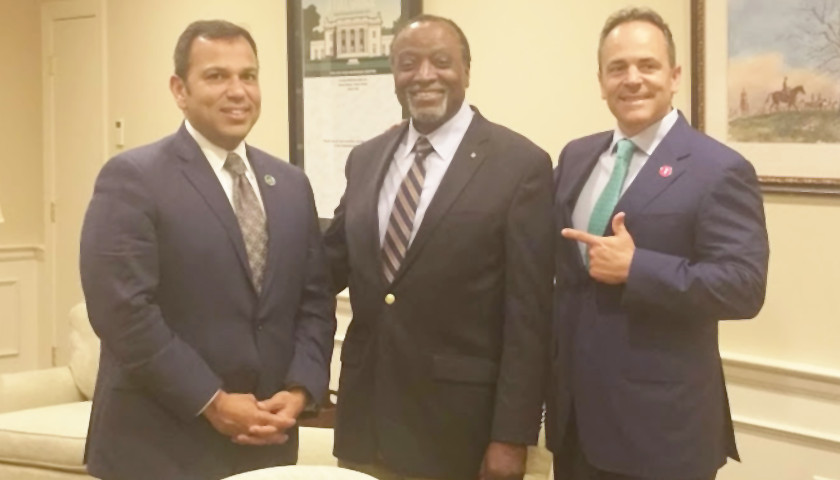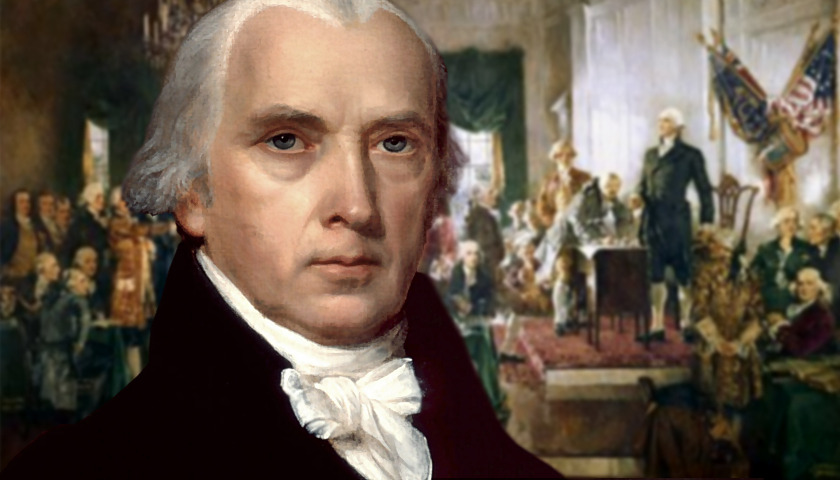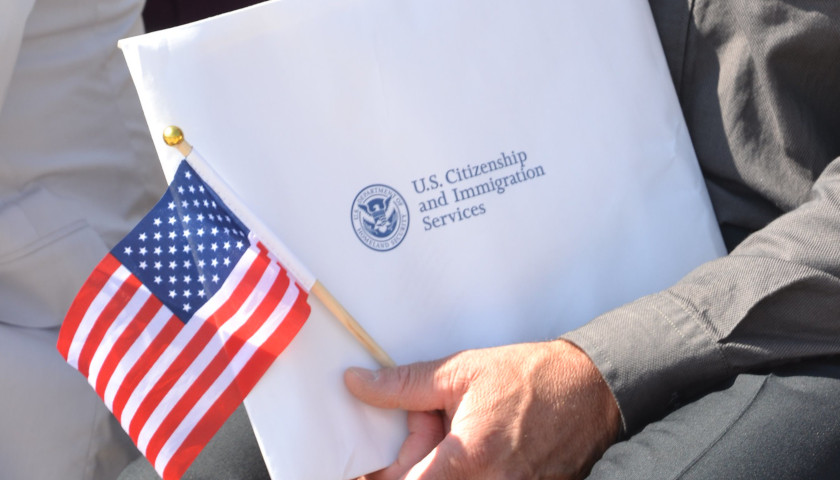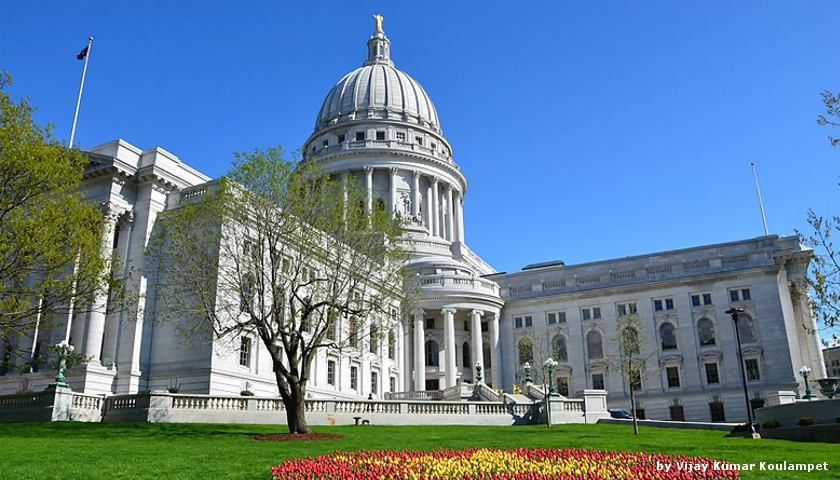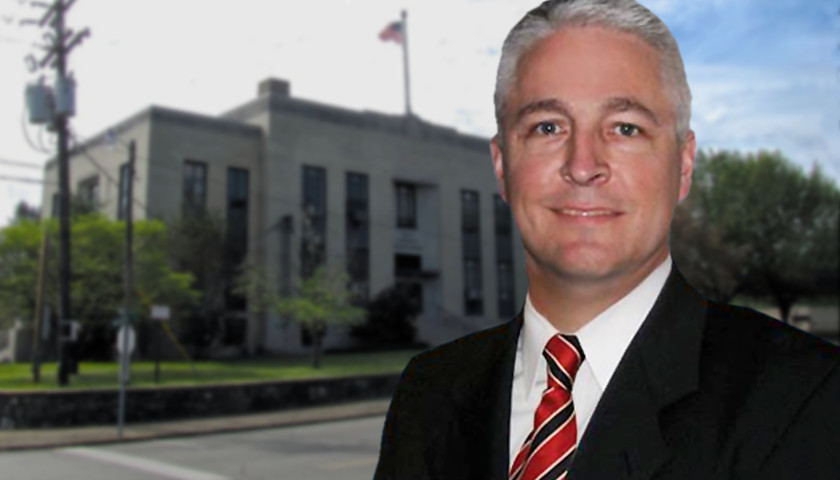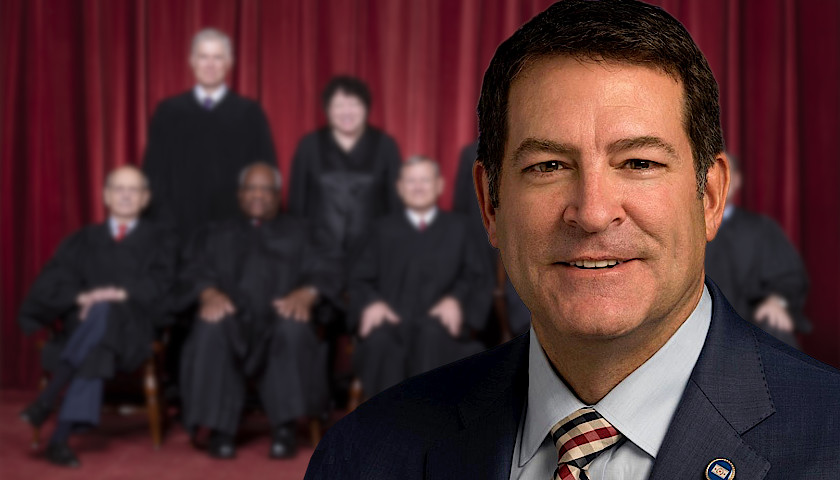Wednesday morning on the Tennessee Star Report, host Michael Patrick Leahy welcomed all-star panelist Crom Carmichael to the studio to discuss the unconstitutional dynamics of impeaching Donald John Trump.
Read the full storyTag: Constitution
Commentary: How to Restore Faith in the Constitution
In one of the most extraordinary passages of his most extraordinary book, C.S. Lewis, the 20th century’s greatest Christian apologist, wrote of Jesus Christ, that he was either the son of God, as he claimed, or a madman. In the Christmas season, believers take comfort in their faith and joyfully embrace the first alternative.
The United States has a tradition of separating church and state, but there is a competing tradition, equally venerable, that our government is only fit for a religious people, one that understands there is a divine order to which humankind ought to conform, and that, as Supreme Court Justice Amy Coney Barrett once explained, it is our task to contribute to the building of the Kingdom of God.
Read the full storyMark Levin Commentary: On January 6, We Learn Whether Our Constitution Will Hold
January 6 is the day we learn whether our Constitution will hold and whether congressional Republicans care.
Read the full storyCommentary: Reflections on the Bill of Rights
The deep divisions plaguing our country may find a remedy in the most unlikely of places: the Bill of Rights. Ratified 229 years ago on December 15, 1791, the first 10 amendments to the Constitution are known collectively as the Bill of Rights. There is little public commemoration of December 15, in contrast to the tradition of celebrating two famous dates in the history of the United States—the Fourth of July, the day that the Declaration of Independence was adopted in 1776, and September 17, the day that the members of the Constitutional Convention signed the Constitution in Philadelphia in 1787. Yet, of the three documents, the Bill of Rights is perhaps the one most invoked by citizens and advocates in everyday life.
Read the full story106 GOP Members, Including Five from Tennessee, Soon to be Six, File Amicus Brief in Texas SCOTUS Election Lawsuit
A total of 106 House Republicans on Thursday filed an amicus brief with the U.S. Supreme Court in support of the plaintiffs in Texas v. Pennsylvania, et al, including Tennessee’s U.S. Representatives Mark Green, Tim Burchett, Chuck Fleischmann, David Kustoff, John Rose, with U.S. Rep. Mike Johnson (R-LA-04) taking the lead.
U.S. Rep. Mark Green (R-TN-07) tweeted, “100+ House Republicans and I have filed a brief urging the Supreme Court to hear the Texas case. The election for the presidency of the United States is too important to not get right.”
Read the full storyCarol Swain on Tennessee Joining States in Texas Election Lawsuit and Takes a Call From Listener Kyle
Thursday morning on the Tennessee Star Report, host Michael Patrick Leahy welcomed former Vanderbilt Professor Carol M. Swain to the show who weighed in on Tennessee joining the Texas lawsuit and why the Supreme Court would take up the suit.
Read the full storyWashington Based National Correspondent for The Tennessee Star Neil W. McCabe Weighs in on Lawsuits, Stimulus Bill, and Swalwell’s Spy
Wednesday morning on the Tennessee Star Report, host Michael Patrick Leahy welcomed the Tennessee Star National Correspondent Neil W. McCabe to discuss the possibility of a new stimulus package, what the Supreme Court will do with the Pennsylvania and Texas lawsuits, and Swalwell’s Chinese spy scandal.
Read the full storyDecember 8 Deadline for Selection of Electors Does Not Apply to Disputed States, Amistad Project Says
In a white paper released Friday, The Amistad Project of the non-partisan Thomas More Society is arguing that the current Electoral College deadlines are both arbitrary and a direct impediment to states’ obligations to investigate disputed elections.
The research paper breaks down the history of Electoral College deadlines and makes clear that this election’s Dec. 8 and Dec. 14 deadlines for the selection of Electors, the assembly of the Electoral College, and the tallying of its votes, respectively, are not only elements of a 72-year old federal statute with no Constitutional basis, but are also actively preventing the states from fulfilling their constitutional — and ethical — obligation to hold free and fair elections. Experts believe that the primary basis for these dates was to provide enough time to affect the presidential transition of power, a concern which is obsolete in the age of internet and air travel.
Read the full storyInstitutional Constraints: Crom Carmichael Explains Why We Need Them and Why They Are Important
Friday morning on the Tennessee Star Report, host Michael Patrick Leahy welcomed the original all-star panelist Crom Carmichael to the show to discuss institutional constraints on government and their necessity to properly govern.
Read the full storyChristian Wedding Photographer and Ministries Sue Virginia Over Law Banning LGBTQ Discrimination
A Christian wedding photographer and two churches, three Christian schools, and a pro-life ministry sued Virginia for its LGBTQ discrimination law. The plaintiffs argue that the law is a violation of religious freedom in the First Amendment.
The Christian plaintiffs say the state law forces their hand. If they don’t forsake God’s commandments, they could endure hundreds of thousands or more in fines and litigation fees. And, they could face a court order to adhere to the law. These individuals are also prohibited from expressing any religious beliefs that may be perceived as discriminatory.
Read the full storyMinnesota, Virginia Congressmen Propose Constitutional Amendment to Limit Supreme Court Size at Nine Justices
U.S. Reps. Collin C. Peterson (D-MN-07) and Denver Riggleman (R-VA-05) said they want to make sure that neither political party can ever pack the Supreme Court.
In a bipartisan joint press release issued Thursday, the representatives said they introduced an amendment to the U.S. Constitution to permanently set the number of U.S. Supreme Court Justices at nine.
Read the full storyCommentary: For the Sake of the Constitution, and the Country, Fill Ginsburg’s Seat Quickly
Justice Ruth Bader Ginsburg died Friday at the age of 87. Her passing was not unexpected. On the contrary, her steadily worsening condition over the past several years left her increasingly incapacitated. After Donald Trump’s election in 2016, many on the Left expressed dismay that she chose to stay on the court rather than resign and let President Obama nominate her replacement.
Read the full storyHarvard Poll Shows Voters Overwhelmingly United on Many Issues, But View Many Rights as Under Threat
Americans largely agree on rights and values that they deem fundamental to the United States, a Harvard University Carr Center poll shows, despite all-time high political polarization.
The survey shows that over 70% of Americans “have more in common with each other than people think” and that they favor an expansive view of rights beyond those in the Constitution. The poll also shows that most Americans believe those rights are under threat.
Read the full storyLetter to the Editor: Colonel George Mason’s Key Contribution to Our Constitution
On 15 September 1787, the Constitutional Convention in Philadelphia was just two days from adjourning after nearly four months of painstaking negotiations.
Yet Col. George Mason of Virginia remained fearful the proposed federal government could one day go rogue. In the waning hours of deliberation, he set out to persuade fellow delegates they were on the verge of codifying a fatal flaw.
On that day, with extraordinary foresight, Mason championed a ‘Break In Case of Emergency’ tool which 233 years later is being used to stop out-of-control federal bureaucrats and career politicians.
Read the full storyOregon Coronavirus Fund May Violate Constitution by Excluding Non-Black Applicants, Experts Say
A COVID-19 relief fund for African-Americans operated out of Portland, Ore., with federal tax dollars may run afoul of both the Constitution and 1964 Civil Rights Act if it excludes non-black applicants, legal experts warn.
The Oregon Cares Fund for Black Relief + Resiliency said it seeks to offer “economic relief for the Black community, who are among Oregon’s most vulnerable groups due to systemic divestment and disparities widened and exacerbated by COVID-19.” The program is administered by two local nonprofits, the Contingent and the Black United Fund of Oregon.
Read the full storyLawsuit Filed Over Ballot Language in Ongoing Battle Over Amendment 1 Redistricting
Virginia Lieutenant Governor candidate Paul Goldman filed a lawsuit Thursday against the State Board of Elections in the ongoing controversy over Amendment 1 redistricting. The suit says that the ballot question on the amendment uses misleading language to unfairly skew voter perception.
Goldman says people will assume they have a fair summary before them. However, he argues this is not the case.
Read the full storyBlackburn Organizes Smithsonian Exhibit of Women Senators Discussing What 19th Amendment Means to Them
U.S. Sens. Marsha Blackburn (R-TN) and Dianne Feinstein (D-CA) assembled a special project for the Smithsonian Institution to celebrate the 100th anniversary of the 19th Amendment’s ratification giving women the right to vote.
They recruited 22 of their female colleagues to write essays about what the centennial means to them and the challenges they faced on their path to the U.S. Senate, Blackburn said in a press release. The exhibit is titled “Senators on Suffrage” and is available online here. It is part of the Smithsonian’s National Museum of American History’s “Creating Icons: How We Remember Woman Suffrage” exhibit.
Read the full storyCommentary: Where Did ‘Cancel Culture’ Begin?
Bari Weiss was not the first victim of “cancel culture,” and certainly she will not be the last, but her exit from the opinion pages of the New York Times has finally focused national attention on the steadily increasing toll of intellectual intolerance among the soi-disant progressive elite. Ms. Weiss’s public resignation letter, which described “constant bullying by colleagues who disagree with my views,” with her superiors at the newspaper evidently condoning this harassment, exposed a cult-like climate of ideological conformity at the Times. Because she is rather young — she was born in 1984, the year Ronald Reagan was reelected — Ms. Weiss is not old enough to remember when liberals posed as champions of free speech and open debate. Some of us are old enough to remember, however, and have a duty to teach young people how it was that liberalism slowly succumbed to totalitarianism.
Read the full storyLawyers Help Ohio Business Owners Organize Lawsuits Into Class Action to Take on DeWine’s Shutdown Regulations
Ohio business owners who are fed up with Gov. Mike DeWine’s ever-lasting shutdown regulations are joining their lawsuits together into a class action against the state.
Three lawyers are working together to help combine existing lawsuits and are looking for other owners whose livelihoods are being threatened by what they say are unconstitutional orders. The suit against the DeWine administration and other government agencies was filed in the Ohio Court of Common Pleas in Lake County.
Read the full storyGovernment Retaliation Prompts Expansion of Lawsuit Against Mayor Cooper and Governor Lee Over COVID-19 Orders
A legal complaint brought by a local bar owner against Nashville Mayor John Cooper and Tennessee Governor Bill Lee for violating constitutional rights with their respective orders related to COVID-19 has since expanded due to more recent retaliatory events.
The original complaint was filed in late May, The Tennessee Star reported, with an amended version filed with the U.S. District Court for the Middle District of Tennessee about a month later.
Read the full storyDr. Simone Gold Commentary: We Do Not Consent
It is clear to me as a physician-lawyer that the disinformation about both Covid-19 and the Constitution has caused us to turn a medical issue into a legal crisis.
The scientific usefulness of a mask has been so aggressively overstated, and the foundational importance of the Constitution has been so aggressively understated, that we have normalized people screaming obscenities at each other while hiking.
Read the full storySwain and Leahy Take Listener Calls Concerning Trial Suspension and Coordinated Election Year Chaos
Live from Music Row Thursday morning on The Tennessee Star Report with Michael Patrick Leahy – broadcast on Nashville’s Talk Radio 98.3 and 1510 WLAC weekdays from 5:00 a.m. to 8:00 a.m. – host Leahy welcomed former Nashville mayoral candidate and all-star panelist Dr. Carol M. Swain to the studio.
At the end of the third hour, Leahy and Swain took calls from a local attorney and a current high school student. Both callers had individual points to make in terms of trial suspensions and election-year Democratic dramatics.
Read the full storyCommentary: The Unelected Parts of Government, Including the Military, Are Revolting Against the Electoral Control by the People
During the Iraq War, the insurgency spent a lot of its resources attacking infrastructure, particularly the electrical grid. This made life miserable for ordinary Iraqis.
That outcome seems to go against the logic of insurgency, where the center of gravity is the people’s allegiance. But making life uncertain and unbearable means that even if the insurgents cannot win, they ensure the regime cannot win either. The cultivation of chaos exposes the government as ineffective and ultimately removes its legitimacy.
Read the full storyEight Bars, Restaurants Sue Acton, DeWine Over ‘Constitutionally Vague’ Restrictions
A lawsuit has been filed against Ohio Health Director Dr. Amy Acton and Gov. Mike DeWine in Lake County Common Pleas Court over “constitutionally vague” restrictions on restaurants and bars, The News-Herald reported.
The case has been assigned to Lake County Common Pleas Court Judge John P. O’Donnell. The plaintiffs are eight bars and restaurants, all but one being located in Northeast Ohio.
Read the full storySheriffs Across the Country Are Refusing to Enforce Unconstitutional Stay at Home Orders
Dozens of sheriffs across the country are refusing to enforce stay-at-home orders because of their unconstitutional nature.
Read the full storyBeacon Center Disagrees With Court Ruling That Decreed Education Savings Accounts are Unconstitutional
A judge ruled that the Tennessee Education Savings Account (ESA) Pilot Program is unconstitutional, and a nonpartisan think tank says that could harm children.
Read the full storySteve Cohen Asks Attorney General Barr to Clarify Trump’s Emergency Powers Comments
Rep. Steve Cohen (D-TN-09) sent a letter to U.S. Attorney General William Barr Friday asking him to clarify President Donald Trump’s comments about the use of emergency powers during the coronavirus pandemic.
Read the full storyCommentary: Rep. Thomas Massie Defends the Constitution Again
As the Democrat-controlled US House of Representatives finally came back into session to appropriate another tranche of $484 billion in coronavirus economic relief, one principled limited government constitutional conservative stood up to ensure their was a quorum of the House present to conduct business and to ask for a roll call vote – Republican Rep. Thomas Massie (KY-4).
Read the full storyState Representatives Martin Daniel and Bruce Griffey Urged Governor Bill Lee to Reopen Tennessee
At least two State Representatives, Martin Daniel (R-Knoxville) and Bruce Griffey (R-Paris) wrote formal letters to Governor Bill Lee, urging him to reopen Tennessee immediately.
Representative Daniel, who will have served three terms in the Tennessee House of Representatives, announced last month that he will not seek reelection in 2020. Representative Griffey is currently serving his first term.
The Representatives wrote their letters based on the input of their constituents and in response to last week’s extension of Governor Lee’s stay-at-home order through April 30.
Read the full storyOhio Health Director Amy Acton Sued for Ban on Non-Essential Businesses
The Ohio Department of Health was sued in federal court Thursday for its ban on “non-essential businesses” during the coronavirus pandemic.
Read the full storyCommentary: Constitution-Respecting Sheriffs Refuse to Enforce Lockdowns
Across the country governors, county commissioners and executives, and city and town officials have announced “lockdowns” or stay-at-home orders of dubious constitutional validity. The result of these orders is the bizarre situation in which jails are being emptied of criminals while individuals engaged in their ordinary business at appropriate social distance have been arrested for the crime of being outside their home.
One of the most high-profile examples of this inverted constitutional order happened in California, where a paddle boarder was arrested near the Malibu Pier for ignoring orders from lifeguards to get out of the water. CBS News Los Angeles reports the unidentified man spent 30 to 40 minutes paddling in the ocean waters off Malibu Beach after refusing to heed orders from L.A. County lifeguards to go ashore. LASD Harbor Patrol brought in a boat, at which point the paddleboarder voluntarily swam in and was taken into custody.
Read the full storyTennessee Senate Candidate Bill Hagerty Talks About Plans to Protect Our Constitutional Rights, Trump’s Visit, and the Death Penalty for Human Traffickers
Live from Music Row Wednesday morning on The Tennessee Star Report with Michael Patrick Leahy – broadcast on Nashville’s Talk Radio 98.3 and 1510 WLAC weekdays from 5:00 a.m. to 8:00 a.m. – host Michael Patrick Leahy welcomed former ambassador to Japan and current Tennessee Senate candidate Bill Hagerty to the show.
Read the full storyRepublican Resolution Would Make Michigan ‘Second Amendment Sanctuary State’
House Republicans are sponsoring a resolution that would declare Michigan a “Second Amendment sanctuary state.”
Read the full storyRoseau County Becomes Minnesota’s First Second Amendment Sanctuary Jurisdiction
The Roseau County Board of Commissioners voted Tuesday to become Minnesota’s first Second Amendment sanctuary county.
Read the full storySeventeen Benjamin Franklin Quotes on Tyranny, Liberty, and Rights
Americans remember Benjamin Franklin as one of our founders. That is fitting because he was not just our most famous citizen at our country’s birth, but he was also so much a central part of that birth that he has been called “The First American.”
Read the full storyFlashback: 152 Years Ago an Ohio Senator Stood One Vote Away From Becoming President During the Impeachment Trial of Andrew Johnson
U.S. Sen. Benjamin Wade of Ohio, the chamber’s president pro tempore, for a time stood one vote away from becoming president in the Senate’s impeachment trial of Andrew Johnson in the wake of Abraham Lincoln’s assassination.
Read the full storyCommentary: Do We Own Our Military?
The preamble to the Constitution lists a number of core functions for the American government. Any American who has ever listened to “Schoolhouse Rock” (or maybe just an obsessive listener like yours truly) can name them all:
Read the full storyCommentary: Attorney General Barr is Right, the Left is Deconstructing the Constitution and the Presidency
Apparently now saying that Article II of the Federal Constitution’s vesting of executive power to the President was an unambiguous, broad grant of unitary executive authority to the President of the United States by the Framers of the Constitution, and arguing for preserving such separation of powers from encroachment, is an impeachable offense.
Read the full storyAmericans Not ‘Buying’ Democrats’ Impeachment Narrative, Rep. Burchett Tells C-SPAN
U.S. Rep. Tim Burchett (R-TN-02) on Wednesday appeared on C-SPAN’s “Washington Journal” call-in program to discuss the impeachment inquiry. He blamed a “cocky attitude” among some in the State Department and said they are upset over not being involved in President Donald Trump’s conversation with Ukrainian President Volodymyr Zelensky.
Read the full storyNeil McCabe from OANN Talks to the Tennessee Star Report About Liberals’ Disdain for the Law
On Tuesday’s Tennessee Star Report with Steve Gill and Michael Patrick Leahy – broadcast on Nashville’s Talk Radio 98.3 and 1510 WLAC weekdays from 5:00 am to 8:00 am – Gill and Leahy spoke with weekly special guest and former Breitbart colleague, Iraq war veteran and current Army Reserve Sergeant Neil McCabe.
Read the full storyDr. Alan Keyes and Kentucky Governor Matt Bevin Meet to Discuss Their Shared Pro-Life Agenda
FRANKFORT, Kentucky – Dr. Alan Keyes, a man of numerous political distinctions, met with Kentucky Governor Matt Bevin at the governor’s mansion in Frankfort, Kentucky, where their shared pro-life agenda dominated the discussion. Dr. Keyes, who holds a Ph.D. in government from Harvard and wrote his dissertation on constitutional theory, ran for president in 1996, 2000 and 2008 and challenged Barack Obama for the open U.S. Senate seat from Illinois in 2004, according to RenewAmerica. Serving as Assistant Secretary of State for International Organizations and as Ambassador to the United Nations Economic and Social Council, Dr. Keyes was the highest-ranking black appointee in the Reagan Administration. In fact, following their initial, very warm greeting, Dr. Keyes stayed to speak with Bevin and his brother, and the Governor called Dr. Keyes “Ambassador” as they sat at a table in a cozy den-type room in the lower level of the Kentucky Governor’s mansion. Governor Bevin and his staff wear a quarter-sized red lapel pin with an open pair of scissors, representing the updating or elimination of 27 percent of Kentucky government’s regulations and reducing the boards and commissions that numbered 572 down to 375 over a period of two years. Bevin,…
Read the full storyCommentary: The One-Two Punch to Knock Out Electoral Democracy
by Michael S. Kochin If you thought, or hoped, that the brave (or nobly self-interested) Democratic Governor of Nevada, Steve Sisolak had thwarted the push for a National Popular Vote by vetoing the bill, think again. On June 12, 2019, Oregon Democratic Governor Kate Brown signed it into law for her state. As of this writing 15 states and the District of Columbia, each with 196 electoral votes, purport to have ratified it. According to its terms as few as three more states (say Texas, Michigan, and Pennsylvania) with 74 electoral votes need to enact the bill for it to go into effect. Should it go into effect, the compacting states, together accumulating a majority of the Electoral College, will cast their electoral votes for whomever is the plurality winner of what the scheme’s backers call “the national popular vote:” whichever presidential and vice-presidential slate gets a plurality of votes when the total votes of all the states (compacting and non-compacting) are aggregated. The scheme, of course, is an effort to change the Constitution without the bother of securing the consent of three-fourths of the states that the Article V Amendment procedure requires. It is also of questionable validity without the consent of Congress.…
Read the full storyCommentary: The American Founding’s High-Minded Purposes
by Edward J. Erler James Madison is justly celebrated for his frequently stated opinion that “all power in just and free Government is derived from compact.” But Madison’s view is not endorsed by all purported champions of the founders. A recent article, “Our Unwritten Constitution: Orestes Brownson and the Foundation of American Liberty,” published as part of the RealClearPolicy series on the American Project and co-authored by Richard M. Reinsch II and the late Peter Augustine Lawler, argues that Madison is utterly mistaken in his claim. In fact, the authors claim that reliance on “Lockean contract theory” produced a constitution that was “devised solely in the interest of the rights of individuals” and was “based on the unrealistic abstraction of unrelated autonomous individuals.” Lawler and Reinsch claim that autonomous individuals – that is, human beings abstracted from real life – cannot provide the appropriate material for political life. They are not “parents, creatures, [or] even citizens. Lockean thought, thus, isn’t political enough to be the foundation of government, and it isn’t relational enough to articulate properly the limits of governments or the roles of family and organized religion.” Reinsch and Lawler rely heavily on Orestes Brownson’s criticism of Locke’s influence on the…
Read the full storyCommentary: The Rise of Administrative Law Over Legislative Law
by William Haupt III “We the people are the rightful masters of both Congress and the courts, not to overthrow the Constitution but to overthrow the men who pervert the Constitution.” – Abraham Lincoln Administrative law is the procedure of creating laws by bureaucratic bodies in our municipal, state and federal governments. It is “mandated law,” made by appointed officials who have been given authority to make decisions for us without our consent. It is illegitimate law being forced upon us with no regard for constitutional protocol. This capricious practice dilutes the fundamental concept of U.S. republicanism. James Madison, a supporter of a powerful federal government, reminded us, “Federal power left unchecked would silently abridge our freedom more than violent usurpations.” Our Constitution clearly defines who is responsible for making laws. “All laws are to be written and passed by representatives approved by the people in federal and local government.” It is difficult to fathom Congress freely delegates powers to administrative agencies that grant them adroitness to rule our lives. How can our Constitution delegate us with an autocratic right, yet allow men we elect and agencies the government invents claim authority over us under the penalty of law? How…
Read the full storyCommentary: Death and the Democrats
by Sebastian Gorka Our nation is unique. Most every other nation was established in a capricious fashion. Whether defined by an ethnicity, a linguistic community, or the happenstance of being ruled by a royal dynastic elite, other countries were not the result of their people appealing to first principles, of building a political structure from scratch based upon the lessons of prior centuries. Ours is different. Yes, our Republic was born out of war, as has been the case with so many others over the centuries. But our Revolutionary War wasn’t simply waged over a brute demand for self-determination. The catalyst for the fight that would result in our being an independent nation-state was the grievous transgressions of a monarch who our Founding Fathers saw as acting in direct contravention to objective and universal truths. After our unlikely victory against what was then the most powerful empire the world had ever seen, our forefathers enshrined those truths into our founding documents. And the Declaration of Independence and our Constitution have served not only to codify those principles as the foundation of our political system for at least 11 generations, they have become a beacon for hundreds of millions of…
Read the full storyCommentary: Does the Constitution Mandate Universal Birthright Citizenship?
by Amy Swearer Who is a United States citizen by birth? This question has increasingly received national attention, in large part because of President Donald Trump’s promise to “end birthright citizenship.” As I explain, however, in my recent Heritage Foundation legal memo titled “The Citizenship Clause’s Original Meaning and What It Means Today,” Congress definitively settled that question in 1866 when it passed the 14th Amendment. The problem is that Congress’ answer was far different from what Americans today often assume. Even though the U.S. government has long abided by a policy of universal birthright citizenship—that is, of treating all persons born in the United States as citizens, regardless of the immigration status of their parents—the reality is that the Constitution doesn’t mandate this policy. In fact, while the Citizenship Clause eliminated race-based barriers to birthright citizenship, Congress expressly intended to limit birthright citizenship based on the strength of a person’s relationship to the United States. More importantly, the government today needn’t amend the Constitution in order to restrict citizenship for the U.S.-born children of illegal or non-immigrant aliens. It could simply stop abiding by a broad policy never required by the Constitution in the first place. Context and…
Read the full storyWisconsin Supreme Court to Hear Extraordinary Session Challenge
by Benjamin Yount Who controls when the Wisconsin State Assembly meets? The Assembly itself, or the state’s constitution written in 1848? The Wisconsin Supreme Court hear arguments on that question Wednesday. The Wisconsin League of Women Voters filed a lawsuit earlier this year that challenges a number of laws passed during last December’s extraordinary session. “Absent an actual emergency, the Legislature should legislate during their regular sessions,” League Executive Director Erin Grunze wrote in an open letter earlier this month. “The Constitution never intended for the Legislature to be in session nonstop. It contradicts the Constitution, and it does not fit with the Legislature’s own history or the other laws it has passed.” Grunze said the Wisconsin Constitution is clear: There are limits to the Assembly’s power. “The Wisconsin Constitution lays out restrictions on the Legislature, including limiting its convening power. This is to ensure legislators act responsibly and honorably when creating laws,” Grunze added. But the leaders in the Assembly and the State Senate, Speaker Robin Vos and Majority Leader Scott Fitzgerald, say they are well within their Constitutional powers to set their own schedule. “A judge should not violate the Legislature’s basic ability to convene when its duly elected members call…
Read the full storyCommission Declares Polk County to Be Gun Sanctuary to Protect Second Amendment Rights
Polk County has declared itself to be a sanctuary – not for illegal immigrants, but for law-abiding gun owners. At Thursday evening’s Polk County Commission meeting, the County Commission voted 8-1 to adopt a resolution declaring Polk a gun sanctuary to protect citizens’ Second Amendment rights, according to a story by the Cleveland Daily Banner. The county is the first in the state to do so. The resolution is based on one passed by in neighboring Cherokee County, North Carolina in March. More than 200 counties in nine states have vowed not to enforce new state measures that restrict gun access, and 132 have voted to become gun sanctuaries despite questions of the measure’s constitutionality. [pdf-embedder url=”https://tennesseestar.com/wp-content/uploads/2019/04/REYNOLDS_Polk-County-Gun.pdf” title=”REYNOLDS_Polk County Gun”] Polk County Sheriff Steve Ross, who supported the resolution, spoke to Chattanooga’s NewsChannel 9. “The vast majority of America feels that we have a second amendment right to bear arms, and we have a right to protect our family and our homes,” Ross said. “We don’t feel the government has a right to come in and take guns from law abiding people that have done nothing wrong.” The resolution does not protect law-breaking citizens with guns, but instead protects…
Read the full storyCommentary: No Constitution for Divided Men
by Helen Lamm Whether we like it or not, the defining political disagreements of our time are no longer based on differences of constitutional interpretation. “Limited government” is probably the most broadly accepted unifying principle of the conservative movement. You can find the phrase in the mission statements of the country’s most prominent right-leaning think tanks. It is a hallmark of modern conservative thought, an homage to the glory days of Ronald Reagan and Margaret Thatcher. The conservative movement built its political identity on this principle, and for good reason. Bureaucratic tyranny, like Cthulhu, expands indiscriminately while crushing civil society under its ever-increasing weight. Bureaucratic overreach is a problem, but it is not the problem. Conservatives tend to distract and paralyze themselves by so rigidly focusing on the principle of “limited government.” Fearful of overreaching, they stand still as the Left reaches over them. Despite operating in what effectively is a post-constitutional context, they attempt to play by rules their enemies have long since abandoned. Take, for instance, Representative Thomas Massie of Kentucky, one of 13 Republicans who voted with the Democrats to overturn President Trump’s national emergency declaration to build the wall. He tweeted late last month, “If…
Read the full storyRep. Green to File Constitutional Amendment Bill to Freeze Supreme Court Bench at Nine Justices to Counter Democrats’ Push to Pack the Court
U.S. Rep. Dr. Mark Green (R-TN-07) says he will introduce a constitutional amendment to halt Democrats’ desire to pack the Supreme Court in a maneuver hearkening back to progressive president FDR. Green on Tuesday tweeted, “This Thursday, I will be introducing a constitutional amendment that would limit the number of Supreme Court justices to 9 – the number of seats since 1869. The Supreme Court must remain a fair and impartial branch of government not beholden to party.” This Thursday, I will be introducing a constitutional amendment that would limit the number of Supreme Court justices to 9 — the number of seats since 1869. The Supreme Court must remain a fair and impartial branch of government not beholden to party. https://t.co/QoHZZyIpb6 — Rep. Mark Green (@RepMarkGreen) March 19, 2019 Green also tweeted, “Schemes to pack the court are dangerous to the Founders’ vision of an independent judiciary that serves as a check on both the Executive and Legislative branches of government.” Schemes to pack the court are dangerous to the Founders' vision of an independent judiciary that serves as a check on both the Executive and Legislative branches of government. — Rep. Mark Green (@RepMarkGreen) March 19, 2019 The…
Read the full story

